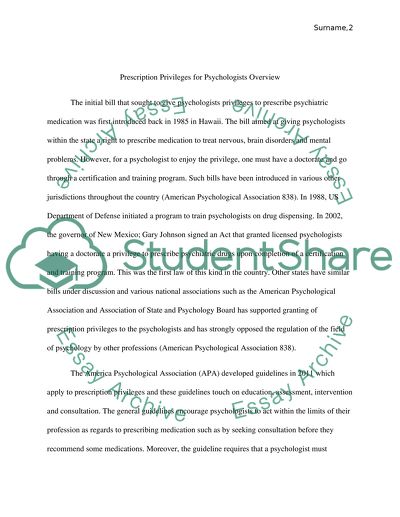Cite this document
(“Benefits and Drawbacks Regarding Prescription Privileges for Essay”, n.d.)
Retrieved from https://studentshare.org/psychology/1452908-critical-thinking-paper
Retrieved from https://studentshare.org/psychology/1452908-critical-thinking-paper
(Benefits and Drawbacks Regarding Prescription Privileges for Essay)
https://studentshare.org/psychology/1452908-critical-thinking-paper.
https://studentshare.org/psychology/1452908-critical-thinking-paper.
“Benefits and Drawbacks Regarding Prescription Privileges for Essay”, n.d. https://studentshare.org/psychology/1452908-critical-thinking-paper.


